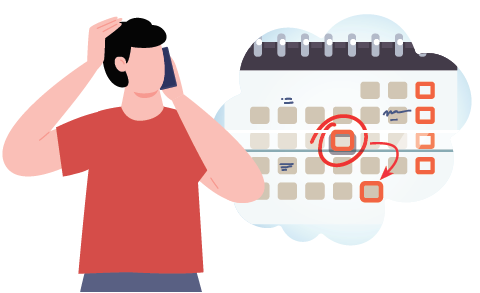
Understanding how NNI operates can make your clinic visits easier. Our Patient Service Associates Nur Hidayah Bte Azman and Pak Foong Peng Jennifer answer eight questions commonly asked by patients and caregivers.
1. Why do call centre staff ask for my NRIC number?
When you call us about an appointment or for medication refills, we need to make sure we access the correct patient details. Using your NRIC is the best way to do this because other patients may have the same name or birth date as you do.
Tip: State your NRIC number at the start of the call as this makes it easier for our staff to provide help.
2. Why can’t I choose the date and time of my appointment?
Our doctors have set clinic days and sessions (mornings and/or afternoons) because they see patients at various hospitals. We will try to book your appointment on your preferred day and time based on the doctor’s availability, but you may have to wait longer for an appointment. All first appointments are screened by our doctors; if they advise that your case is urgent, we will give you the earliest available slot. Our urgent slots are limited, so changing them is difficult.
3. I was told a doctor’s memo would take a week or longer. Why is that so?
Memos can only be signed by the specialist who has treated the patient. Many of our doctors work at other hospitals across Singapore, and some are at NNI@TTSH Campus just one day a week; therefore, this is the only time they are able to sign memos.
4. Why can’t my medicine be delivered the same day?
Public hospitals across Singapore provide free medication delivery, Mondays to Saturdays, except public holidays, but there are limited slots each day due to the availability of delivery services. It can take up to two weeks to get a delivery slot, so please check your medication supplies regularly and order refills early.
Tip: If you need medication refills urgently, we can arrange for you to collect the medication from the pharmacy, or for express delivery service (charged at $8) if available.
5. Why won’t the doctor see me if I’m late?
Some of our doctors need to go to the wards, operating theatre, or attend meetings at the end of their clinic. If you know you are going to be more than 30 minutes late, please call us so we can check whether the doctor can wait for you. If this is not possible, we will rearrange your appointment to avoid you making a wasted journey.
6. Why does my helper have to wait outside the clinic?
Many of our patients are elderly and at risk of serious complications if they catch COVID-19. To prevent overcrowding and reduce this risk, only one accompanying person is allowed to enter the clinic with the patient, based on current MOH guidelines. Other family members and helpers must wait outside the clinic; if they need to assist the patient – e.g. to use the toilet – they need to swap places so there is only one accompanying person with the patient at all times.
7. Why can’t the staff check my Medisave balance and deductions?
The billing system will immediately alert our staff if a Medisave claim is unsuccessful; for example, if there is not enough balance in the Medisave account or if the annual withdrawal limit has already been reached. These are the only details our staff can see – they cannot access your Medisave balance or details of previous deductions.
Tip: Contact the Central Provident Fund (CPF) Board to check your Medisave balance/usage:
www.cpf.gov.sg (log-in with SingPass)
Tel: 1800 227 1188 (8am to 5.30pm, Mon-Fri except PH)
Visit a CPF Service Centre (by appointment only)
8. Why can’t my medication charges be included in my clinic bill?
Medication billing is done separately by the pharmacy, because it is the only service with access to medication charges. To save time waiting to collect and pay for medication, ask our staff if you can use the free medication delivery service. You will be billed once the medication has been delivered. Payment can be made online, or at AXS/SAM machines and post offices.
Need more advice? Click here for our contact details.
This article was published in the National Neuroscience Institute's NeusLink magazine, which covers articles about NNI updates and brain, spine, muscle and nerve conditions in English and Chinese - to read more articles click here!













 Get it on Google Play
Get it on Google Play